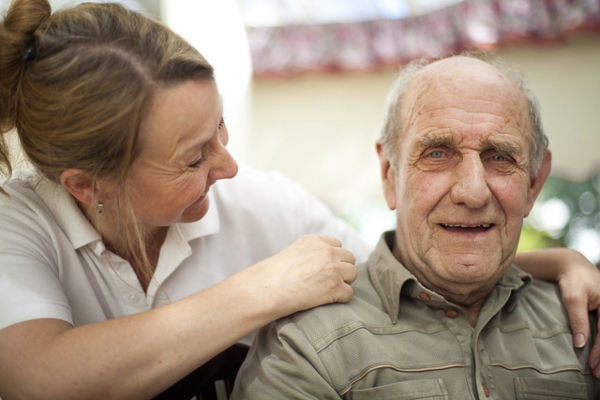Sometimes, life throws a curveball your way. Someone you love, such as a parent, may have to go in for a crucial surgery, or may have recently suffered from a serious fall or injury. Recovering from something that severe involves time and energy, and you may find it helpful—and necessary—to make changes to the home where your parent or loved one is staying while recovering. Whether it’s your home or theirs, ensuring their environment is safe is paramount to their recovery.
There are some easy precautions you can take to accident-proof your or your parent’s house to help guarantee their safety. You may even want to keep these precautions in place even after your parent has recovered, as they can keep you and other members of the family safe as well.

First, tackle home safety.
Before your parent or loved one comes home, walk through the area they’ll be staying. Move any furniture that will be in the way, to make a clear path from room to room. Remove any unnecessary extension cords, or tape them down along the wall, so your parent won’t trip over them. Check the lights in your home, and make sure they are bright. You should also make sure that your floors haven’t been cleaned with a product that will make them slippery.
Make your bathrooms safer.
Bathrooms are a common place for accidents to occur. Lower the odds for an accident by putting down non-skid mats in your shower and on the floor. Also, install grab bars in the shower, so your loved one can more easily maneuver in and out of the tub. If they cannot easily stand, put in a shower chair and a hand-held showerhead. This will allow your parent to feel more independent.
Secure your outdoors.
If you have a pathway leading to or from your front or back door, you may want to either replace old light bulbs or install new brighter lights, so your parents can clearly see the surrounding area should they go outside after dark. If you have steep steps leading down a deck or patio, consider installing extra steps that aren’t so steep, or possibly a ramp. Sunshine and fresh air can help your parent’s healing time; provide ways for them to get outside with minimal assistance.
Ask for help!
It can be difficult to focus most of your time and attention to an injured or recovering parent—you have a job, kids, a mortgage, and many other responsibilities all claiming your attention. Although you love your parent, you both would benefit from having additional assistance to provide the extra one-on-one attention they need. A terrific solution is to call a non-medical NJ elder care service. Home care services send professional, licensed home health aides or certified nurse aides directly to the home. The aides are scheduled around your parent’s schedule, making them the center of their own recovery. A home care aide can help get your parents back on their feet in no time by helping them with recovery exercises, doing housework, taking care of pets, preparing and serving meals, going on errands and shopping, and much more!
Helping the person who raised you is one of the most important things you can do. Show them all the love that they showed you by helping them feel like their healthier selves again.
Sara Stricker is part of a team of dedicated writers who contribute hundreds of quality articles to blogs and sites. Her grandmother recovered from a broken hip and shattered elbow using many of these tips and tricks. Follow her @StrickerSara for more articles.
Recovering From Injury Or Surgery As A Senior

